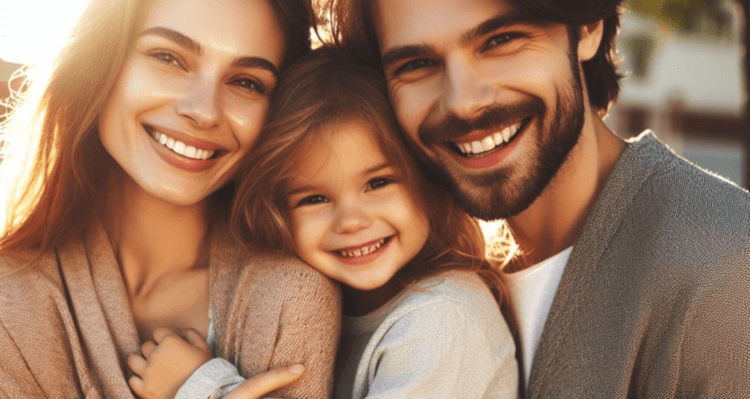Scientists have long suspected that hugs are good for health, and there was even some scientific evidence for this, obtained as a result of research. However, it remained unclear exactly what positive effects touch has and what types of touching or hugging have positive effects on the body. To some extent, German scientists who conducted a large-scale study managed to clarify the situation. In total, almost 13 thousand people of different ages, female and male, took part in it. As a result, the team not only discovered that physical touch improves mental and even physical health, but also received answers to many questions that had remained a mystery.

Hugging has been shown to be beneficial for physical and mental health
Which touch is beneficial
A team of scientists from the Ruhr University in Bochum, together with the Netherlands Institute of Neuroscience, combined and analyzed the results of all previous studies regarding hugs in As a result, I got a more comprehensive picture. In particular, the positive effect of touch was noted in both children, including newborns, and adults.
The type of touch doesn't seem to matter much; it could be a hug or a massage. However, touching the head and face was most effective, with the greatest benefit from short, frequent touches.
It turned out that it matters who exactly touches. For example, research shows that touch is beneficial for newborns, but the effect is significantly greater when the baby is touched by parents. True, in adulthood it is not so important how familiar the person who is touching is. But, all the same, it is important that it is the person who touches.

Children are better off when their parents hug them
Touching from an inanimate object, such as a robot or just an object such as a blanket or pillow, helps in terms of physical health, but does not make a difference in mental health. But the touch of animals, as a rule, is beneficial not only for physical but also mental health. Therefore, even if a cat tramples on you while you are lying on the bed, this will also be useful.
What are the benefits of touching
According to the study, touch was effective in regulating cortisol levels in the blood. Recall that this is a stress hormone produced by the adrenal glands, which is involved in the “fight or flight” response. This hormone affects blood pressure levels, the metabolism of proteins, fats and carbohydrates. We previously talked about how cortisol levels in people are highest in the morning, so it is not recommended to drink coffee in the morning.
Hugging also reduces pain, reduces depression and anxiety, promotes weight gain in newborns and etc. Being touched by robots had about the same effect on human health, but only physically. Such touches have no effect on the mental state. Researchers report this in the journal Nature Human Behavior.

For adults, it doesn’t matter which person is touching, as long as it’s consensual
But the touch of health care workers, even if they were strangers to the patients, was just as beneficial for mental health as the touch of loved ones. However, for hugs and other touching to be beneficial, they must be consensual. However, the study notes that the effectiveness of touch varies from person to person. That is, for some people touch is more useful, and for others less so. But, in any case, if you want to hug a loved one or friends, do not restrain yourself – physical contact with other people can improve many aspects of your health.
According to scientists, the results are not surprising, since touch is the first of our senses to develop. The team also expects that research in this direction may allow us to determine the most effective types of touch so that they can be used for therapeutic purposes.
Be sure to subscribe to our Zen and Telegram channels so you don’t miss the most interesting and incredible scientific discoveries!
Finally, let us remind you that earlier scientists also discovered the benefits of sleeping together in bed with a partner. People who co-sleep have better sleep quality without changing their sleep time. Specifically, the study reported that co-sleeping particularly improved REM sleep, which is associated with dreaming. Co-sleeping has proven to be especially beneficial if the couples have a good relationship. All this suggests that evolutionarily we have adapted to live side by side with other people — as a child with his parents, and as an adult with his partner. This may be why single people live several years less.